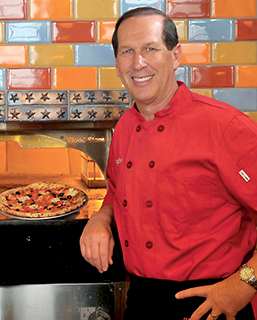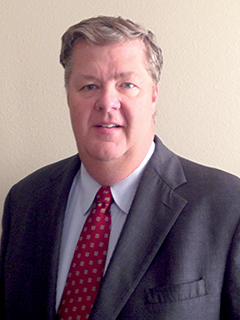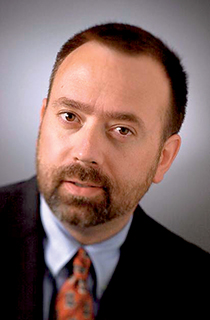

CEO of the Year 2012: Medium company finalists
Eric Peterson //December 1, 2012//
(Now in its eighth year, the ColoradoBiz CEO of the Year award seeks to recognize outstanding professional achievement and community impact while taking into account obstacles surmounted, career-long body of work or other unique elements of the CEO’s life and work. Nominations from Colorado’s business community, ColoradoBiz readers and staff are evaluated by a judging panel made up of the magazine’s editorial board and, this year, representatives from the Colorado Association of Commerce & Industry.)
Here are this year’s finalists in the “Medium Company” category:

Jeff Popiel
CEO, Geotech Environmental Equipment
After starting in sales with the family business in 1996, Popiel took over as Geotech CEO from his father Jerry in 2008 just as the recession hit. Four years later, the company, which manufactures a thick catalog of environmental monitoring products at its north Denver facility, is posting its best sales year ever ($18 million) and is poised to eclipse its pre-recession staff size (105 employees).
The recession was a big challenge, but it was also an opportunity, says Popiel. “We came through it a lot stronger.” He took the opportunity to rework and optimize, implementing lean manufacturing processes and pushing a team-centric mindset. “We focused on our company culture,” he says. “We talk a lot about process before personality – you can improve on a process.”
And now Geotech is leading the charge to reverse the offshoring trend. “We manufacture in Denver and we think that’s cool,” he says, describing contract business in a wide range of industries. “We’ve done a good job re-shoring jobs to the U.S. I thought some of that stuff went overseas and was gone forever. To grow the economy, we’ve got to make things.”

Dale Katechis
founder, Oskar Blues Brewery
Celebrating its 10-year “caniversary” in November 2012, Oskar Blues started canning craft beer in 2002, long before it was cool. More than 100 million cans of beer later, Katechis says the Longmont-based company “hit a nerve with the consumer.” He only had to “educate” the consumer on the preservative and eco-friendly nature of the aluminum can.
Katechis’s ever-expanding empire now includes the brewery, a mountain-bike brand in Reeb (that’s “beer” backwards), two restaurants (two more are in the works), and a farm that supplies beef to the restaurants. “Being an entrepreneur, I’ve enjoyed the flexibility and the ability to create, and being able to do it on my own terms,” he says. Having his finger in so many different pies “suits my ADD really well,” Katechis adds. “I pop into one meeting, then change gears and pop into another.”
Of the Oskar Blues company culture and his role in it, Katechis says, “It’s like the pirates have taken over the ship, and it’s my job to keep the pirates in charge. Each of my employees is empowered. They don’t feel like they have a boss.”

Joe Kellogg
CEO, Madwire Media
The age of the yellow pages is over, and the Internet era is in full swing, says Kellogg. “If you’re a plumber and you’re on top of search, you’re doing fine,” he explains. “If you’re not, you’re feeling the pinch.”
Launched in May 2009, Madwire Media has emerged as the largest website design shop in Colorado in three short years, and the Loveland-based company now employs roughly 100 people. The company sells several tiers of website services and solutions starting at $360 per month. “We take care of all of the Internet marketing,” says Kellogg. The company employs six marketing teams, each with an account manager, two to three designers, two to three developers, and two to three SEO people. “It’s easily scalable,” says Kellogg.
One Madwire mantra is multiple websites. “If you have a lot of different product offerings and you’re doing one website, you’re missing out,” says Kellogg.
To this end, Madwire has sites for a full 100 different vertical markets, ranging from plumbers to massage therapists. “We do the same thing for our customers. Instead of one huge site, we build them several smaller sites.”
Kellogg commends his son, J.B., Madwire’s operations manager. “He basically runs everything,” says the proud papa. “We want to do what we say and say what we do,” he adds. “That’s our motto around here.”

Andre Durand
CEO, Ping Identity
Durand founded Ping Identity in 2002. A decade later, the cloud security solutions provider has annual sales “north of $50 million” and is now the largest firm in the country focused on IT security and privacy.
Durand says the Denver company’s success is inseparable from the cloud-computing boom. “The ball’s rolling downhill and we’re chasing it,” he says.
Interestingly, Durand sounds hopeful for a post-password world. “Passwords are the weak link in the security model,” he says. “Rather than a bunch of weak doors, we’re going to have one strong door.”
He also finds the best route to future success is to reverse engineer it. “How do you know you are making a beeline to your vision? You have to work backwards. You start with the future and work backwards.
“I’m kind of a strategic vision person,” he adds. “It’s in my DNA. But you can have the best strategy in the world but it’s nothing if you can’t execute. You have to do both.”
Durand is now working backwards from an “eventual” IPO. “I’m preparing the company to go big,” he says. “But that’s not the finish line. It’s the starting line.”
{pagebreak}

Larry DiPasquale
chairman and CEO, Epicurean Catering
Three decades into his career, DiPasquale has nurtured Epicurean into one of the longest lasting and largest catering companies in the country, handling catering for such big-name clients as Sports Authority Field at Mile High and the Denver Center for the Performing Arts.
“Thirty years is a long time in the food business,” he says. “Trends change a lot.” For instance, Epicurean recently launched a street division with food trucks and mobile pizza ovens, and the move helped Epicurean grow by about 20 percent in 2012.
Since 2008, DiPasquale has also been in the restaurant business with Mangia Bevi at the Palazzo Verdi building in the Denver Tech Center, where he hosts a lot of events. “I’m Italian and I wanted a place where I could do Italian specialties,” he says. “It’s going great.
“As an entrepreneur, I think work ethic is the most important thing,” he says. “At first, you don’t realize how hard it’s going to be and how committed you have to be.”
Charity work is another of DiPasquale’s passions. “We really try to have an impact on the community we’ve been blessed to do business in,” he says.

Mark Steputis
president and CEO, Vision Graphics
Vision’s CEO and sole owner since 1999, Steputis learned the printing business from his late uncle, Francis Brooks, who preceded him as CEO. “He taught me the business,” Steputis says. And he taught him well: Annual sales for the Loveland-based company have grown from about $1 million to about $20 million over the course of Steputis’ tenure as CEO.
Today the challenge is to offer an integrated approach that encompasses not only print media but myriad electronic and digital channels as well. “The communications pie was four pieces,” Steputis says. “Now it’s dozens of pieces. You can’t just take email and you can’t just take print.”
Vision’s acquisition of Denver’s Eagle:XM in early 2012 gave the company a big boost in its digital and electronic capabilities. “In the past, you had to do that with two vendors,” he says. “That’s really tough. With Vision, it’s all under one roof.”
Steputis says the recent recession offered him a moment of truth as CEO. “You’ve got to face it head-on and address it and make quick decisions,” he says. “The natural instinct is to cover up and hope it goes away. That doesn’t work.”

George Heinrichs
president and co-founder, Intrado
Heinrichs co-founded Intrado, a provider of emergency communications technology, in 1979 and today the company has about 750 employees in Colorado, plus more at offices in Montreal and Austin. “We’ve slowed down, but we’re still growing,” says Heinrichs.
Along with the growth, Heinrichs has seen sweeping change in Intrado’s market. “Phone systems in America have just skyrocketed technologically,” he says. “Cell phone adoption is north of 100 percent. Who would have thought we would have had more cell phones than people right now?”
With that innovation, Intrado has worked to improve emergency communications with next-generation services and solutions. “911 remains simple to the outside world,” says Heinrichs. “Behind the scenes, you’re seeing increasing complexity.” Longmont-based Intrado offers text-to-911 and geolocation services that take advantage of such advances.
One key, says Heinrichs, is to have “fast failures,” and that goes double for companies in the communications business. “You try to pick the winners as early as you can,” he explains. “Same goes for losers. Don’t spend a lot of time on something that’s not going anywhere.”






















